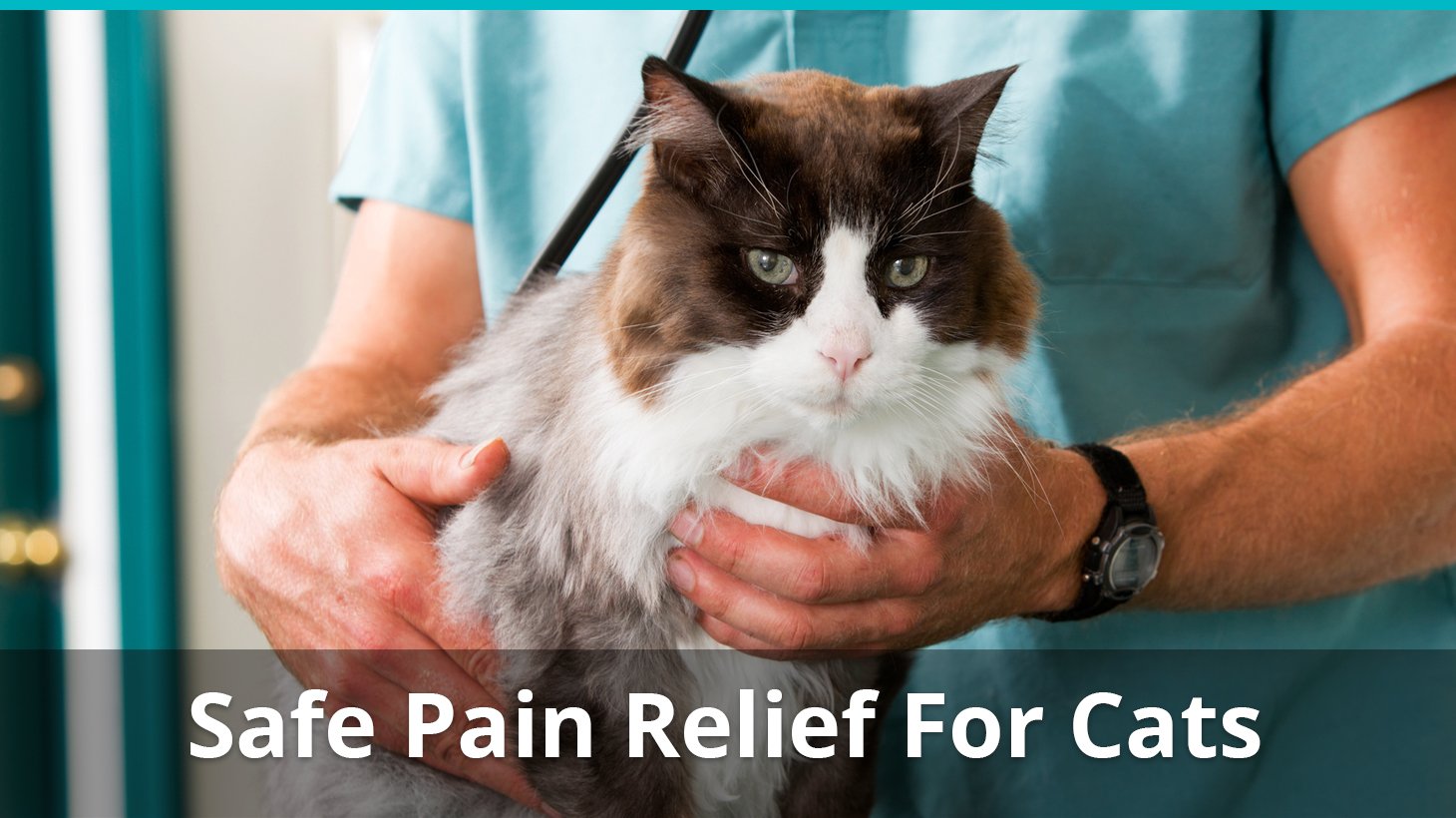Because cats speak differently from humans, it can be extremely frustrating when your kitty is in pain but can’t tell you where or why.
Felines can communicate through hissing, meowing, chirping, and various other sounds, but these sounds don’t always mean that there’s something wrong.
But in cases of excessive meowing, loss of appetite, lethargy, depression, dehydration, muscle weakness, and lack of energy, your furry pal might be in pain.
Diarrhea, limping, vomiting, urinating problems, not drinking enough water, and so forth could also indicate a problem.
So what can you do to relieve the cat’s pain?
For starters, you need to call your vet immediately and explain the symptoms as thoroughly as possible. That should always be your first step if you suspect any kind of problem.
If you can’t schedule an appointment soon enough, there are a few safe pain reliever for cats that you can try as a stopgap measure at home. Remember, though, they’re only temporary and are no substitute by a vet.
Safe Pain Relief Options For Your Cat At Home
Before you administer any remedies to your feline pal, it’s essential to keep in mind that there are different types of meds suitable for different types of aches.
For example, you can’t give anxiety remedies to treat pain caused by infection or inflammation. Moreover, pain relief suitable for humans or dogs will not help your cat. In fact, it may harm your pet severely.
DO NOT USE NSAIDs (Non-Steroidal Anti-Inflammatory Drugs)
Tylenol, ibuprofen, and other similar meds are the most common NSAIDs found at your local drugstore. When you’re sick, you reach for an aspirin. Do not EVER give any to your cat, however!
NSAIDs must be avoided at all costs!
A feline’s body cannot process such common human medications. While they may work very well for you, they will definitely hurt, and could even kill your beloved kitty!
CBD Oil
This one is gaining more and more love from pet-owners and vets alike. And for good reason.
CBD oil is simply great for pain, and it provides much-needed relation benefits for cats that are hurting. You can also use it in conjunction with the other options listed below.
CBD comes from the flowers of the hemp plant. It does not have the psychoactive ingredient THC, so you’re cat isn’t going to start hallucinating or anything like that.
I highly urge you to check out our article on CBD for cats, as it goes into detail on the many benefits of CBD, how it works, how to use, dosages, etc. It’s definitely something worth having on hand.
Opioid Medications
Some of the most common opioids, such as codeine, morphine, fentanyl, and hydromorphone, are safe for cats and are often prescribed by vets for post-surgical treatment. They can also come in handy for reducing the pain from chronic conditions like cancer or arthritis.
Though these forms of pain relief are safe for your feline pal, never administer them to your pet before consulting a reputable veterinarian, particularly because you could still seriously harm your cat by giving it the wrong dose.
Inflammation-Reducing Corticosteroids
Prednisolone, dexamethasone, and other similar corticosteroids are often given to cats to relieve inflammation and other painful side effects of allergies, arthritis, or other health conditions.
While they are pet-safe, you should ask your vet for the proper dosage. As with any medications, if abused or used incorrectly, corticosteroids can harm your kitty.
Omega-3 Fatty Acids
Instead of giving your cat medication for pain relief, you can change its diet. Foods that are abundant in omega-3 fatty acids like salmon can relieve the kitty’s pain. Due to the inflammation-reducing properties of the omega-3s, a simple change of diet can go a long way.
In fact, senior cats should be getting a substantial amount of omega-3s due to the fact that the healthy fatty acids reduce joint inflammation. And as you well know, joint problems aren’t uncommon for older kitties.
Cranberry Juice
Cranberry juice is a well-known home remedy for cats suffering from urinary tract infection. Peeing too much or too little, doing it outside the litter box, and/or suffering from inflammation and pain during urination, are common symptoms for UTI.
Of course, not all cranberry-based products are the same, and specialists are still debating whether or not cranberry juice can cure UTI. However, it has been shown that in most cases, it can relieve some of your kitty’s pain.
Vitamins
Vitamin deficiencies not only result in a number of health issues, but can also increase the pain your feline pal is experiencing. It may sound obvious and too simple, but vitamins can do wonders for your pet. You can either get them as supplements or just focus on vitamin-packed premium cat foods. These should not harm your cat. But always consult with your vet first. Better safe than sorry.
So it comes down to this: You can make diet and supplement changes at home, but you should probably never give your cat actual pain medication without the assistance of your veterinarian.
Regardless of the pain’s source, don’t ever attempt to self-diagnose your pet. Don’t administer any form of medication before consulting with your vet.
If you’re suspecting that your cat is in pain or that something’s wrong with its overall health, schedule an appointment with a reputable doctor as soon as possible.
And always keep in mind that you should never give common NSAIDs to your cat for any reason, including pain relief!


My kitten just got declawed, send to be in pain, will not put his one paw down what can I do for his pain?
Thank you